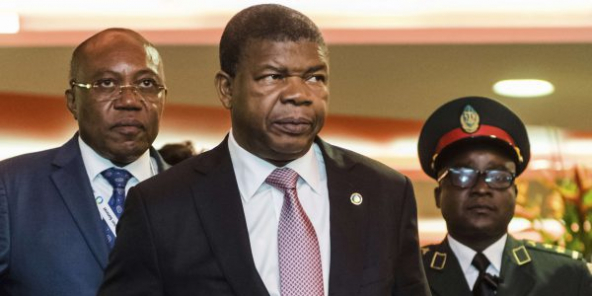The anti-corruption campaign currently being waged by the Angolan government is likely to suffer from the collateral effects of Mozambique’s hidden debt scandal known as “Tuna Bonds”.
If we believe in the report of the intelligence firm EXX Africa, there is serious risk that the current government of Angola is caught by a crisis of the kind that has crippled Mozambique, affected by debt which reaches 112% of GDP.
As a reminder, on January 25, 2019, the Parliament of Mozambique requested that the country’s former finance minister, Manuel Chang, be placed in pre-trial detention pending his extradition to the United States following his recent arrest in neighboring South Africa.
Manuel Chang, the visible face of the iceberg

Manuel Chang has applied for parole. The South African justice must decide on this request on January 31. The former minister’s request for extradition to Mozambique will be examined on 5 February. More than 18 Mozambican personalities are implicated for corruption, breach of trust and money laundering.
In his investigation, Exx Africa talks about links between several Angolan politicians and the Mozambique debt scandal. “During our investigation, many red flags surrounding the contracts of the naval manufacturer Privinvest in Angola were mentioned, some of which report risks to the reputation of the Angolan President, Jao Lourenço”, reports Exx Africa.
Privinvest, the link between Angola and Mozambique

Privinvest’s negotiator, Jean Boustani, was arrested in the United States, accused of having set up a system of bribes around the contract awarded to his company for the protection of Mozambican coasts (2,470 km). It should be remembered that Privinvest is the company of the French-Lebanese businessman Iskandar Safa.
One of the projects suspected of fraud was contracted by the Mozambican public company ProIndicus, which contracted $ 622 million from Credit Suisse and the Russian public bank VTB Capital.
Another parastatal, Ematum, received a loan of $ 850 million from the two banks, Credit Suisse and VTB Capital for the construction of a tuna fleet. A third project involving Privinvest and the Mozambique Asset Management (MAM) fund is a $ 500 million loan to facilitate the upgrade of the surveillance fleet. All these loans guaranteed by the State of Mozambique began to default in 2017.
The Mozambican government reached an agreement with its creditors in November 2018 for the restructuring of its debts, including a eurobond of $ 726.5 million. The agreement places part of the country’s future gas revenues collateral. Thus, instead of punishing the perpetrators of these impaired loans, the IMF and the international community opt for a collective punishment, observers comment. Mozambique’s main opposition party, Renamo, stressed that the debts resulting from this fraud “should not be paid by the Mozambican people”. In a statement, Renamo welcomed the “energetic action” of the US justice but lambasted “the inertia of the Mozambican authorities” and the Frelimo party in power.
In concrete terms, the creditors who hold Ematum’s “Tuna Bonds” agreed in November to exchange their old shares for new ones, which will be repaid in five installments, between 2029 and 2033. Until 2023, interest – 5.875% per year – will be paid only partially, the balance being added to the repayable capital. In addition, investors will receive 5% of the revenue from two major offshore gas projects, up to a maximum of $ 500 million.
The links that lead to President Jao Lourenço.

According to Exx Africa, the company Privinvest, main protagonist in the vast scandal of the Mozambican debt, was in relation with the president Joao Lourenço of the time when this one was minister of the Defense. Thus, Exx Africa continues, the company Simportex, linked to the Angolan Ministry of Defense, had entered into a joint venture with Privinvest and signed, in 2015, two contracts worth 122 million euros with the companies of the Finmeccanica group. .
On 23 December 2015, Simportex signed a contract worth 115 million euros with the Angolan Ministry of Defense for radar equipment and communication systems around the Angolan coast.
Another agreement of 7.3 million euros was concluded over the 2014-2015 period between Angola via Simportex and Privinvest on behalf of its French subsidiary (CMN, Mécaniques Mécaniques de Normandie) for a project hydroelectric. Various sources indicate that Boustani was involved in negotiating Privinvest’s offers in Angola and that a company of the current president, Consultores e Prestação de Servicios (JALC), played a role in these negotiations.
In addition, continues Exx Africa, the former vice-president, Manuel Vicente, current economic and financial adviser to Lourenço with powers and extraordinary influence on government policy, has played a leading role in the negotiation of Privinvest contracts in Angola. It would be Manuel Vicente who introduced businessman Gabriele Volpi to Mozambique and later to Lourenço. Vicente’s company, Sadissa, has also done business with Simportex.
Having come to power in September 2017, President Lourenço led an anti-corruption campaign hailed by the international community and crowned in December 2018 with the signing of a three-year $ 3.7 billion contract with the International Monetary Fund. The national currency, Kwanza, which has lost 46% of its value against the dollar has not yet found colors.



